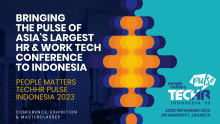Role of HR that may transform the work environment

This pandemic has brought a wind of change around the world, from personal to professional; every part of life has seen a drastic transformation. From an individual to a business, everyone has had to adapt. HR departments of every company have been working towards a comprehensive people-first strategy to ride out this pandemic. HR departments across all sectors of every industry have implemented changes that are designed to keep employees safe and informed, quell fears and limit disruptions to company operations.
Many trends have emerged that are spearheaded by HR and are a vector of change for the workplace. HR has been at the forefront of tackling this pandemic, and they have taken new roles to guide employees and organizational leadership through the changes brought on by this pandemic.
Here are some of the roles of HR that will transform the work environment even after everything returns to normal:
Flexibility while maintaining Productivity
Even though COVID-19 has brought on a lot of obstacles for companies, there have been some positive side effects; remote working is one of them. The remote working culture has seen an industry-wide acceptance and flexibility has made its room in the new standards of the workplace. HRs have been managing and supporting employees across time zones and geographical lines. HRs understand the need to keep track of productivity in this age of flexible work hours. They are playing an integral role in ensuring that no one feels burnt out and remains a productive unit of the organization. HRs are leveraging technology and partnerships to ensure that remote working goes smoothly for their employees. Even after the pandemic ends, the HR departments would have to continue taking this added responsibility as remote working culture is here to stay.
Virtual Team coordination
One of the significant and most valuable roles of HR is to ensure engagement with employees. With majority of the workforce working from home HRs have had to adapt and think out of the box to keep employees engaged, enthused and productive. In the present virtual work environment HR now has an added responsibility to ensure smooth communication between all company personnel while keeping a record of performances and implementing feedbacks. HRs have very quickly adapted and slipped into this new role. They have become efficient in virtual team coordination that even after the pandemic ends, Company's will not remain reluctant in hiring people from different geographies.
Work-life balance in the new normal
Working digitally and alone may have its perks, but there are certain downsides to it as well. Digital isolation can make employees less productive and can be emotionally challenging for many people. Therefore, HR's role in motivating the employees, managing their stress and keeping them informed is in the limelight. This stress management role is bound to keep HR on their feet for many years to come.
Leverage technology for refining employee engagement policies
With a digital-first work environment, HRs are working frantically to include digitally-empowered HR services to onboard new employees; automate employee documentation and payroll, rewards, recognition and more. These digitally empowered services are the key to bridge the gap that social distancing norms and remote working has created. It is more important than ever to invest in reward and recognition programs to keep employees engaged. HRs and Employers can reward, recognize and motivate employees who have helped keep the company performance up even during the pandemic through loyalty programs.
Focus on learning
Training the employees about the new workplace rules, conducting sessions for newly introduced software, offering multiple internal and external educational programs that allow employees to learn and build new skill is a role that HR departments have played for quite a while but this pandemic demands a lot more focus on learning as knowledge exchange has been limited in a digitally isolated work environment.
Resilient, prepared, and people-first leadership by HR is helping companies to ride out the COVID crisis. The very same crisis has revealed many hidden aspects of how HRs can contribute to the smooth functioning of a company. Their varied roles have made work more fluid, and the changes are here to stay even when the crisis abates.















